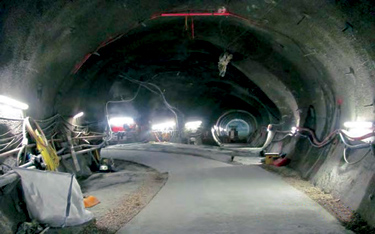
SSE said it welcomed a decision by the UK’s Supreme Court, which unanimously found in favor of the company in its capital allowances case in relation to construction of the 100 MW Glendoe Hydro Electric Station.
The Glendoe facility is located about 200 km north of Edinburgh near Fort Augustus in Scotland. It began operating in January 2009.
SSE had claimed capital allowances on expenditures incurred when constructing the power station. Such allowances may be deducted from income for the purpose of calculating a company’s trading profits subject to corporation tax.
Commissioners for His Majesty’s Revenue and Customs (HMRC) disputed certain allowances SSE claimed for tax years March 31, 2006, to March 31, 2012, on the basis that, in their view, certain relevant assets did not give rise to allowable expenditure under the Capital Allowances Act 2001.
The dispute resulted in the matter being brought before the First-tier Tribunal, Upper Tribunal, and Court of Appeal before being appealed to the Supreme Court by HMRC.
The issue in the appeal before the Supreme Court was whether items constructed for the collection and transmission of water to, through and from the hydroelectric power station (the “disputed items”) are a “tunnel” or an “aqueduct” within the meaning of those words as used in section 22 List B of Chapter 3, Part 2 of the Capital Allowances Act 2001. If they were so deemed, the expenditure on the disputed items does not qualify for capital allowances.
The Supreme Court unanimously dismissed the appeal, holding that the disputed items are neither a “tunnel” nor an “aqueduct.”
Conclusion of the case confirms that around £200 million (US$249.3 million) of expenditure incurred on Glendoe qualifies for capital allowances, which SSE will receive over an about 50-year period as tax relief against the overall taxable UK profits of the group.
“We welcome today’s decision by the UK Supreme Court which has unanimously found in favour of SSE in its long-running capital allowances case in relation to Glendoe Hydro Electric Station. This ruling provides welcome clarity on the tax treatment of allowances and credits for essential low carbon assets. Such allowances and credits play an important contributory role in low carbon investments and will support the ongoing actions SSE is taking as the UK’s clean energy champion to deliver the homegrown energy infrastructure the country needs,” SSE said in a statement.